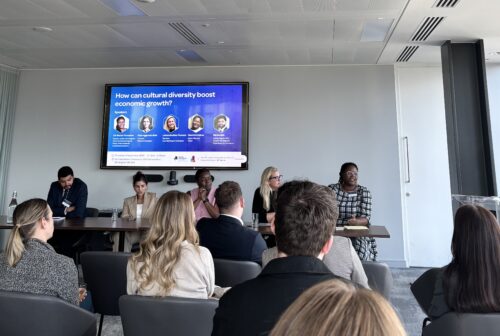“There are no hard-to-reach groups, we just need to show up differently’’

I recently had the opportunity to attend Birmingham’s PREACH Inclusion Event. It was an inspiring day, highlighting how cultural and gender diversity can boost economic growth and positively shape the future of the built environment.
The panel consisted of a range of experts, including Councillor Sharon Thompson, Barrister Leanne Buckley, Senior Planner Charlotte Palmer, Acting Deputy CEO of the Greater Birmingham Chambers of Commerce Raj Kandola, and PREACH Inclusion founder Priya Aggarwal-Shah.
A powerful message stood out from the day: “there are no hard-to-reach groups, we just need to show up differently’’. The panel reinforced the importance of working with local organisations, faith communities and leaders who reflect the people that make up our cities. In Birmingham, where over half the population is of ethnic minority backgrounds, it is vital that development reflects this diversity. Genuine engagement helps create inclusive projects that speak to the needs of everyone.
The panel stressed the need for developers to create a legacy that benefits all demographics. Listening and learning from local communities helps developers understand what kind of legacy people want and how the development can deliver meaningful and thoughtful benefits. This approach not only ensures that communities feel positive about the changes in their area, but also fosters a sense of inclusion, long-term commitment and connection to the legacy.
Representation in construction came through as both urgent and hopeful. Every part of the sector, from bricklayers to planning consultants to senior leadership, needs to reflect wider society. That journey can start early by working with schools and providing visible role models who help challenge outdated stereotypes and inspire the next generation to see a future in construction.
There was also a thought-provoking call to consider how cultural assessments might sit alongside environmental and economic ones in the planning system. In diverse cities like Birmingham, this could lead to deeper consultation and help shape developments that respond directly to community values and priorities.
At Meeting Place, social impact, inclusion and equity are central to how we work. These values shape the way we communicate, the people we reach and how we support developers to better understand the communities they are building in. Inclusive consultation leads to better places and stronger legacies for all.
